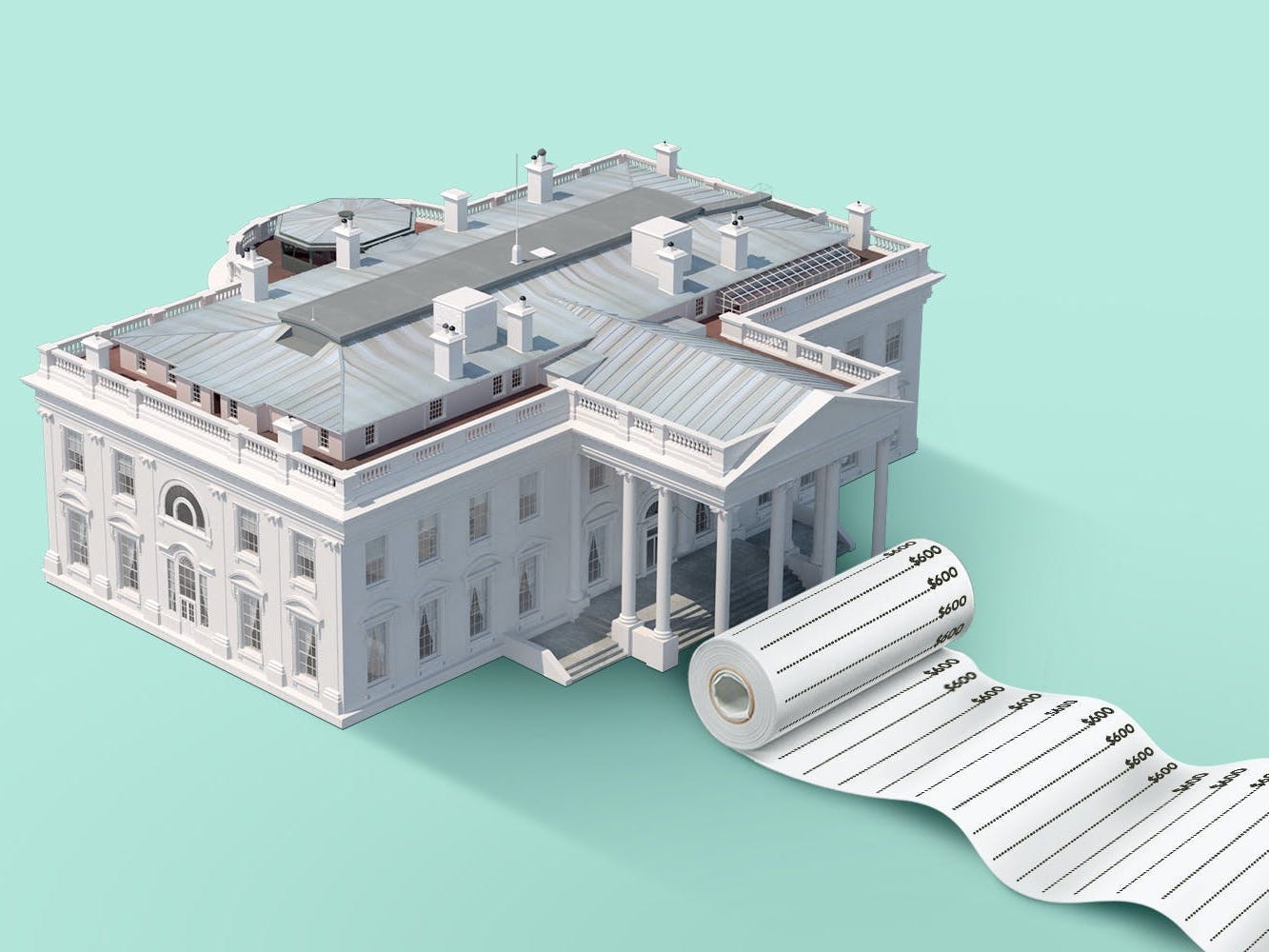
Francis Scialabba
Hello! This story is from today's edition of Morning Brew, an awesome daily email publication read by 2.5 million next-generation leaders like you. Sign up here to get it!
This morning, President Biden will send Congress a jumbo-sized $6 trillion budget for FY2022, the NYT reported yesterday. If it passes, federal spending will eclipse records set during WWII.
AP Gov detour: Funding for each fiscal year, which runs Oct.-Sept., is technically hammered out through 12 appropriations bills passed by Congress and signed by the president. What Biden will release today (as is tradition in a president's first year) is more a map of Democrats' spending priorities for the next decade. Congress is free to toss it in the recycling bin if it chooses.
What's inside?
Enough mentions of the t-word to make Republicans woozy. The budget includes March's $1.9 trillion pandemic stimulus plus several of Biden's major proposals: the $2.3 trillion American Jobs plan, the $1.8 trillion American Families Plan, and $1.5 trillion in discretionary spending increases.
The budget is also expected to outline additional policy proposals like...
- A public health insurance option
- Funds to get women back into the workforce
- Costs tied to the withdrawal from Afghanistan
- Expanding the US Cyber Command to meet growing cyber threats
Biden's budget will reportedly increase federal spending to $8.2 trillion/year by 2031, which would require running annual deficits of $1.3+ trillion, including a $1.8 trillion deficit in 2022. Biden's proposal to pay for most of this new spending with tax increases (including a 28% corporate rate) faces challenges from Republicans, some Democrats, and some executives.
Not the only new bill on Capitol Hill
Yesterday, GOP senators released a $928 billion counteroffer to Biden's infrastructure package, more than half of which would go to roads and bridges.
While the bill falls short of funding goals for several of Biden's priorities-particularly investments in rail, public transit, and clean energy-the White House said it's big enough to continue negotiations into next week, which means blowing past Biden's original Memorial Day deadline to pass an infrastructure deal.
This story is from today's edition of Morning Brew, a daily email publication. Sign up here to get it!
